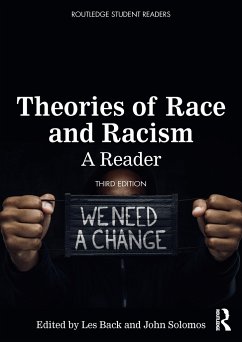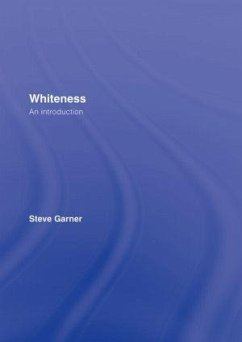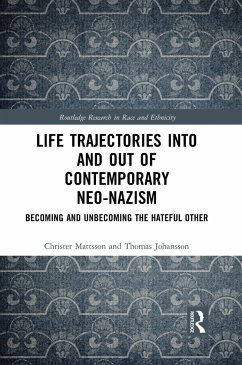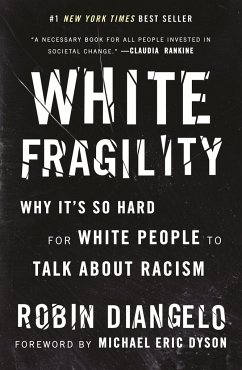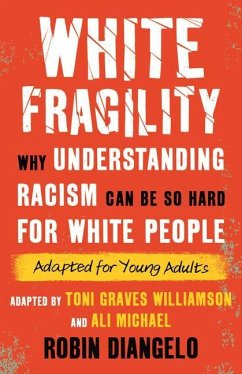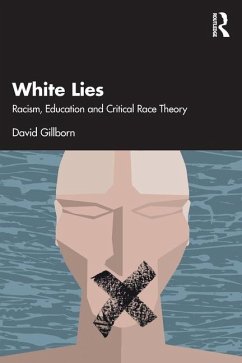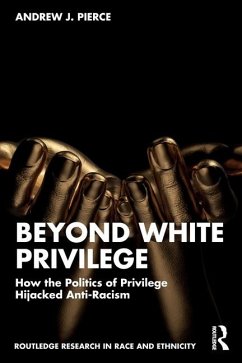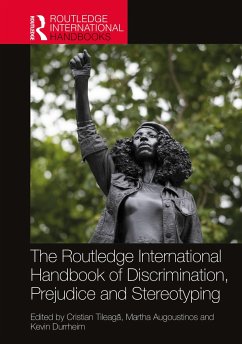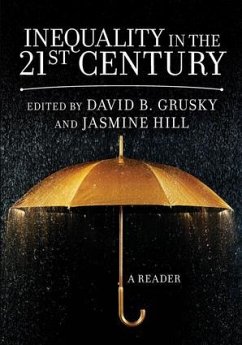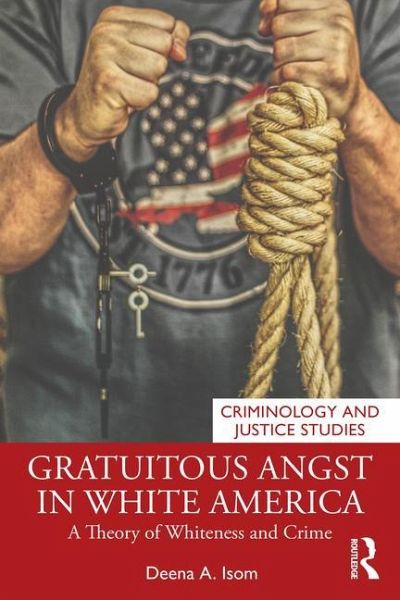
Gratuitous Angst in White America
A Theory of Whiteness and Crime
Versandkostenfrei!
Versandfertig in 6-10 Tagen
43,99 €
inkl. MwSt.
Weitere Ausgaben:

PAYBACK Punkte
22 °P sammeln!
Winner of the 2025 Division on Critical Criminology & Social Justice (DCCSJ) Jock Young Criminological Imagination Book Award!Gratuitous Angst in White America presents a new criminological theory that explains the racialized experiences of white people. Unlike orthodox traditions that assume whiteness as normative or progressive traditions that center the experiences of the marginalized and oppressed, the theory of whiteness and crime flips those perspectives and turns a lens toward white people's lived experiences and the ideologies of whiteness. The theory of whiteness and crime answers two...
Winner of the 2025 Division on Critical Criminology & Social Justice (DCCSJ) Jock Young Criminological Imagination Book Award!
Gratuitous Angst in White America presents a new criminological theory that explains the racialized experiences of white people. Unlike orthodox traditions that assume whiteness as normative or progressive traditions that center the experiences of the marginalized and oppressed, the theory of whiteness and crime flips those perspectives and turns a lens toward white people's lived experiences and the ideologies of whiteness. The theory of whiteness and crime answers two overarching questions: How does being white impact one's likelihood of engaging in deviant, criminal, and/or violent behaviors? And, why are white people treated differently than other racial and ethnic groups by the criminal legal system? Through the application of a critical whiteness perspective to criminology, the theory of whiteness and crime is an intersectional and integrated framework that explains within (and between) group differences in negative behaviors and entanglements with the criminal legal system.
This book examines the racialized history of America to contextualize the current racial strife in society and inform a more nuanced theoretical approach to explaining disparities. The reader will gain a socio-historical understanding of the depths of the current divides and insight into how such are perpetuated and potentially dismantled. Students will see connections between various theoretical traditions and an application of theory to current social conditions. Researchers will acquire a new theoretical foundation and propositions to ground empirical work that will fill extensive gaps in the criminological literature. And policy makers will see how oversights in understanding the depths of historical significance perpetuate and increase disparities and disadvantages, which are counter to a pursuit of justice.
Written in a compelling and direct way, this book will appeal to those in criminology, sociology, race and ethnic studies, gender and sexuality studies, political science, cultural studies, psychology, criminal justice, law, and beyond. Gratuitous Angst in White America is essential for those seeking a more complete understanding of the associations between race and crime and those who want to remedy those disparities. In the end, it is more than a new theory of crime, it is a call to action for all willing to hear.
Gratuitous Angst in White America presents a new criminological theory that explains the racialized experiences of white people. Unlike orthodox traditions that assume whiteness as normative or progressive traditions that center the experiences of the marginalized and oppressed, the theory of whiteness and crime flips those perspectives and turns a lens toward white people's lived experiences and the ideologies of whiteness. The theory of whiteness and crime answers two overarching questions: How does being white impact one's likelihood of engaging in deviant, criminal, and/or violent behaviors? And, why are white people treated differently than other racial and ethnic groups by the criminal legal system? Through the application of a critical whiteness perspective to criminology, the theory of whiteness and crime is an intersectional and integrated framework that explains within (and between) group differences in negative behaviors and entanglements with the criminal legal system.
This book examines the racialized history of America to contextualize the current racial strife in society and inform a more nuanced theoretical approach to explaining disparities. The reader will gain a socio-historical understanding of the depths of the current divides and insight into how such are perpetuated and potentially dismantled. Students will see connections between various theoretical traditions and an application of theory to current social conditions. Researchers will acquire a new theoretical foundation and propositions to ground empirical work that will fill extensive gaps in the criminological literature. And policy makers will see how oversights in understanding the depths of historical significance perpetuate and increase disparities and disadvantages, which are counter to a pursuit of justice.
Written in a compelling and direct way, this book will appeal to those in criminology, sociology, race and ethnic studies, gender and sexuality studies, political science, cultural studies, psychology, criminal justice, law, and beyond. Gratuitous Angst in White America is essential for those seeking a more complete understanding of the associations between race and crime and those who want to remedy those disparities. In the end, it is more than a new theory of crime, it is a call to action for all willing to hear.





